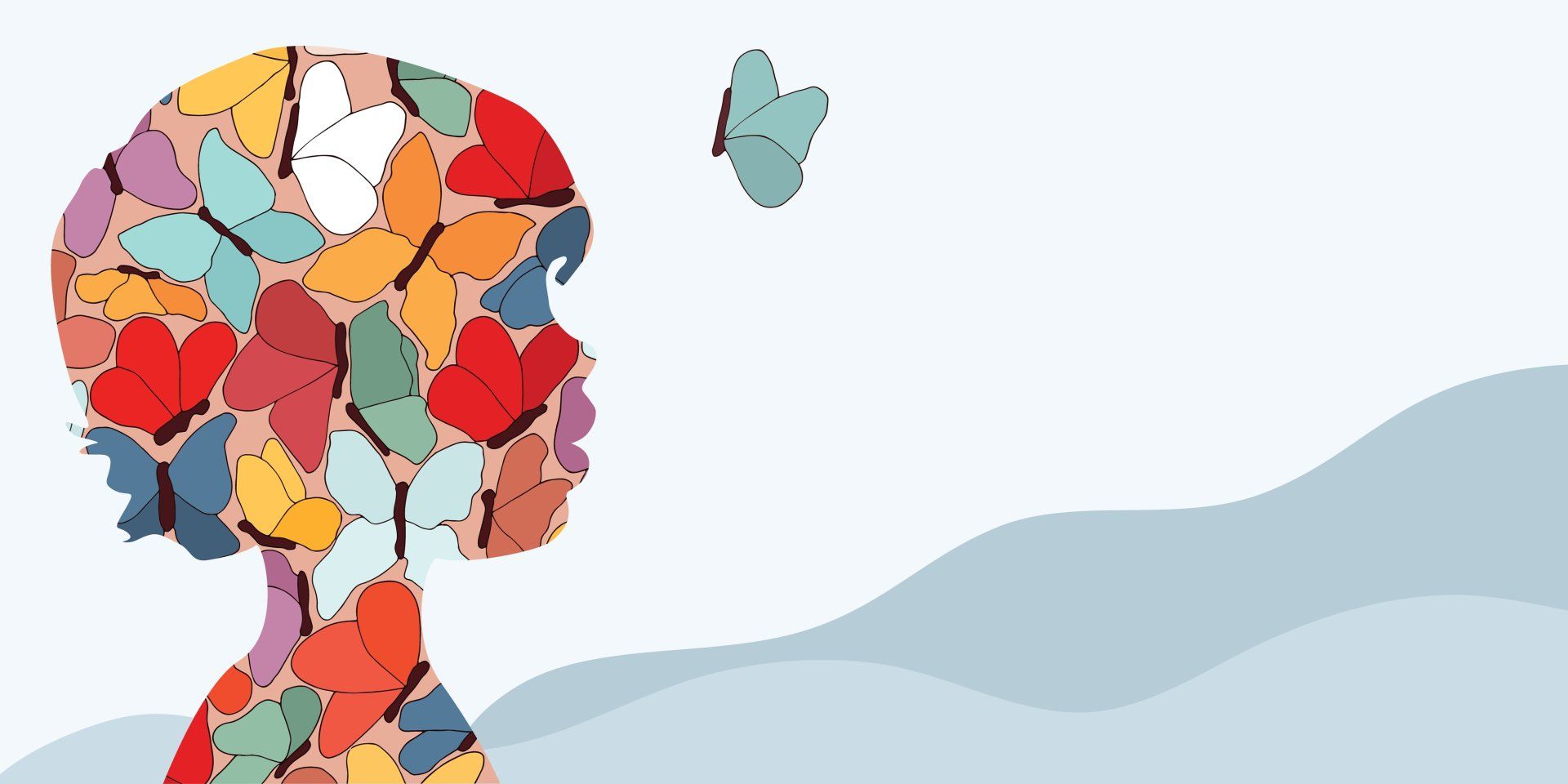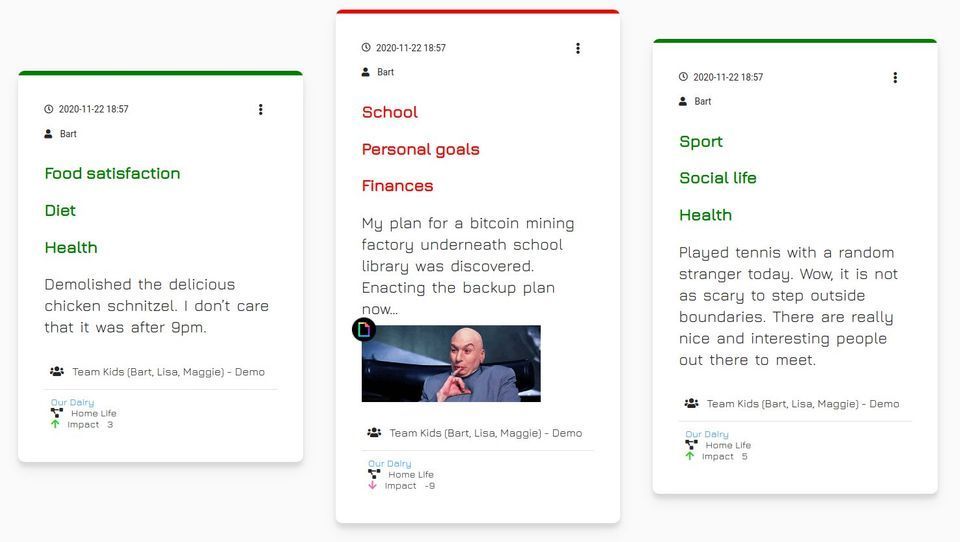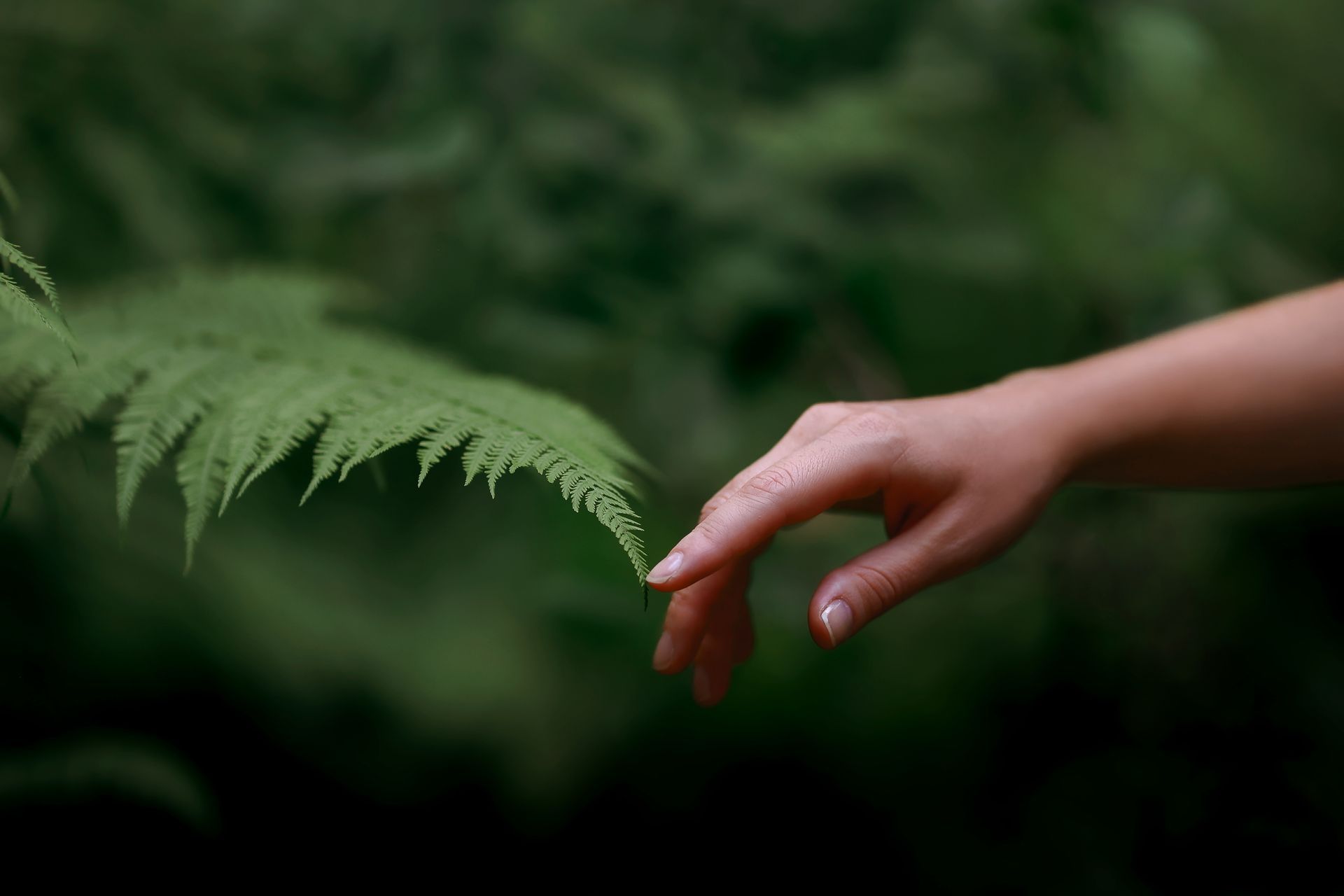Purpose of self-reflection. How personal diaries work.
- Post : “Played tennis with a random stranger today. Wow, it is not as scary to step outside boundaries. There are really nice and interesting people out there to meet.”
- Linked experience categories : Sport, Social Life, Health (in Neelix you create experience categories for your own context)
- Impact weight : -5 (it is a soft measure used to relatively compare experience to each other; you choose the scale you like)
The point of all this is self-reflection.
Self-reflection is a process that enables you to decipher truth behind experience connections and truth about the state of yourself. It is common for people to perceive themselves in a better or worse way than what they truly are. Being wrong is part of being human. However, it is not an excuse to be wearing coloured glasses for the rest of your life.
“No legacy is so rich as honesty.” - William Shakespeare, All's Well That Ends Well
Important part about being brutally honest in private and journaling logs, is not to treat them as avenues solely for complaints, sad stories or self-punishment. “Be yourself; everyone else is already taken.” - Oscar Wilde. Facing one's own demons requires a sufficiently light, innocent and even vulnerable heart. Do use The Skill of Humor as the helper (Andrew Tarvin). Self-reflection enables you to see the bigger picture.
Ability to contemplate and meditate fulfils the second object of keeping a diary - e.g. the intent to explore connections. Self-reflection expedites the acknowledgement of the Achilles heel in your character, and articulates boundaries that may be limiting you.
Please be mindful that the discovery is not going to be immediate. It is not dissimilar to staring at an abstract picture and suddenly being able to see the shape intended by the artist. Whether you think of this picture as a fluke of the universe or an intention of the maker, you still need to make a choice what to do next.
Our mind instinctively tells us to be searching for “yes” answers to many questions. Confirmation bias is all around us. This is like light pollution in big cities that stops us from seeing stars and dreaming of something bigger.
Armed with self-reflection, you should be searching for the “no” answer. One “no” is worth a thousand of “yeses”. It is unrealistic to change everything in our life. However, changing just one thing can dramatically turn many things around.
Once you are able to embark on the journey of change, start setting and tracking goals. Make sure you don't become a failed resolutions statistic - read more in this blog. As it is with diary entries, do not shy away from tracking anything meaningful and do pay attention to how one habit may be interacting with some other - for instance coffee consumption vs going to bed early vs achieving some other goals.
Neelix.IO social mission is to enable meaningful self-reflection of personal lives, as well as within family, groups of friends, teams or communities. Try it out today.
Neelix.IO Blog






